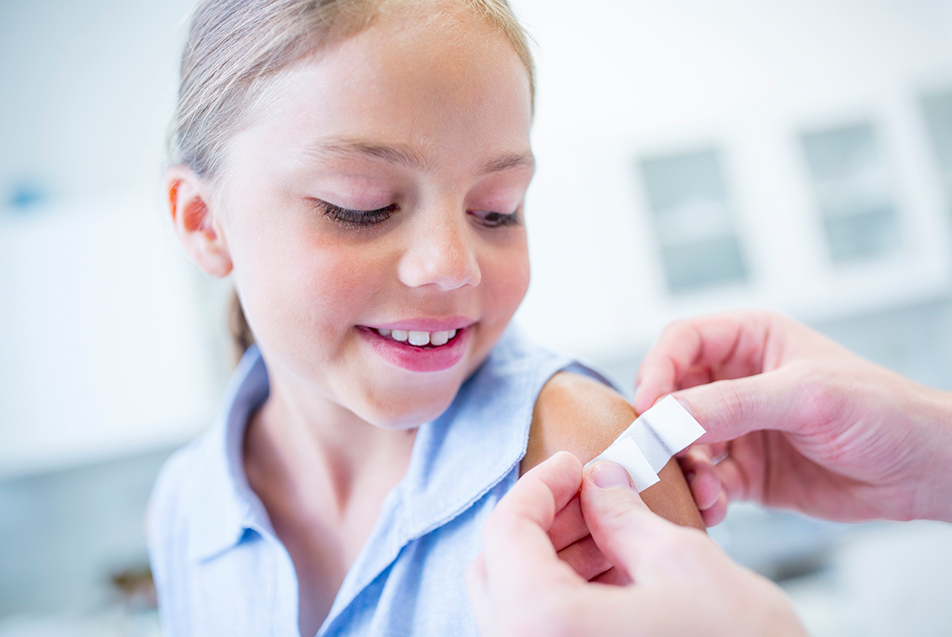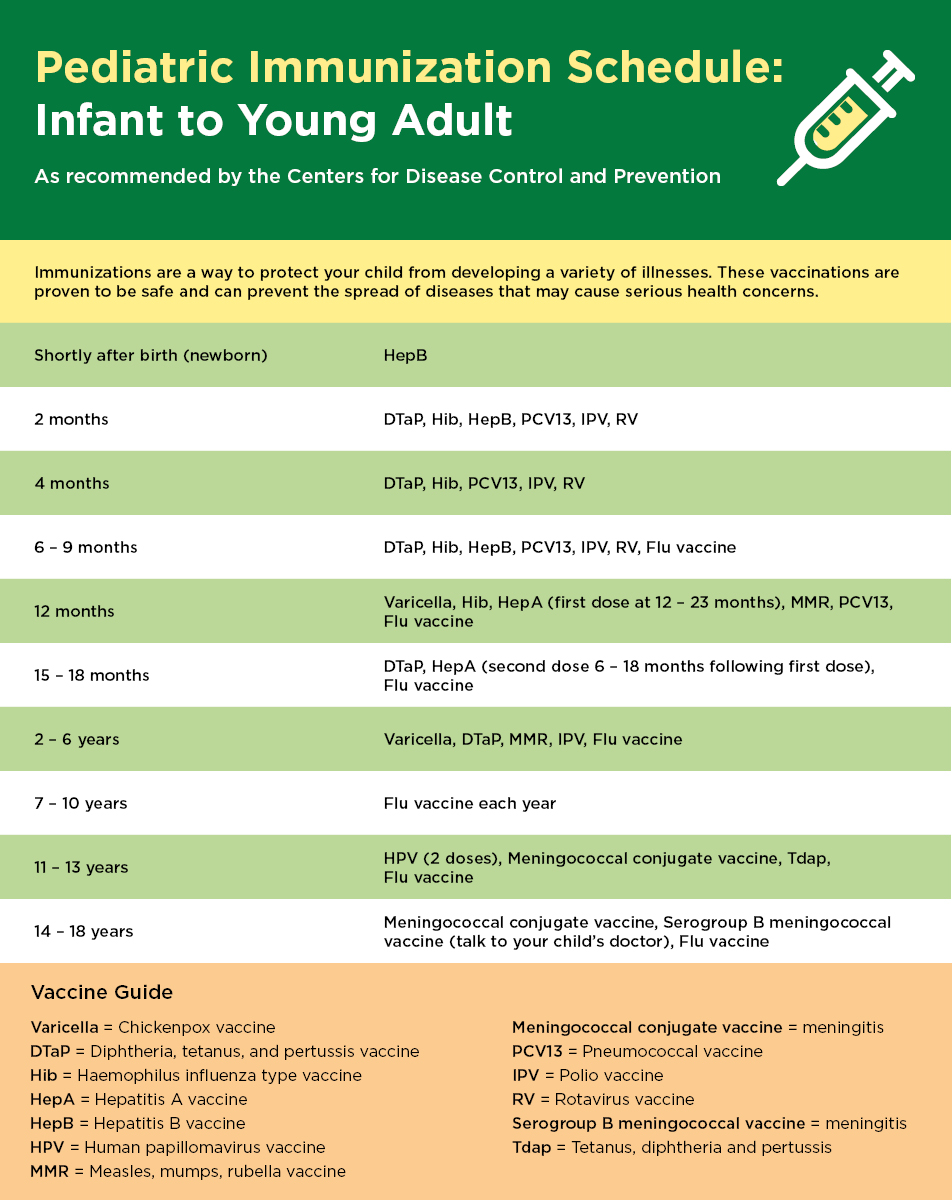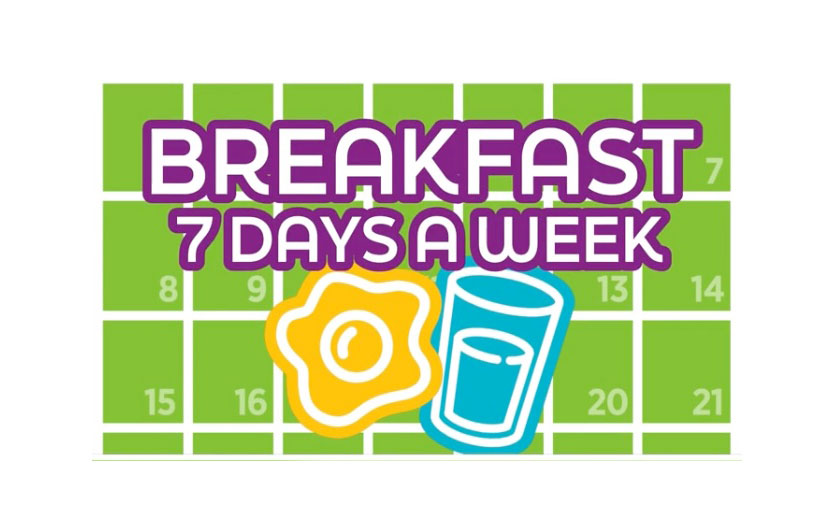
Parents of newborns soon learn that their little ones will need a series of vaccinations over time, and some can find that a little intimidating. But they should be encouraged: the fact that so many vaccinations are now an essential part of childhood is actually very good news. Each is a powerful tool created to keep an awful disease from putting children – and the people around them – at risk for suffering. We asked Duane Hougendobler, MD, Parkview Physicians Group – Pediatrics, to give us some perspective on the value of immunization.
Why should children be vaccinated?
Vaccinations help strengthen a child’s defenses against serious disease. In pediatrics, we’re all about getting every child off to a strong start in life, and vaccinations are an important preventive measure to do just that. It’s much easier – and kinder to the child – to prevent a disease than to try to treat it once it’s causing trouble.
My staff and I are happy to talk with parents about how vaccination stimulates a child’s immune system and why certain shots are needed at certain developmental stages. If parents are anxious, I try to help them understand that there is a lot at stake: their child’s lifelong health and safety.
Occasionally, a parent will ask, “Why does my child have to be vaccinated for chicken pox? I had it, and it wasn’t bad.” My response is, for 90 to 95 percent of kids when you were growing up, it wasn’t a big thing. It was a pain, it was itchy, it was a couple weeks of misery and then you were fine. But not everyone reacts the same way and to the same degree. There were kids who got varicella (chicken pox) meningitis, or varicella pneumonia, and ended up on a ventilator. It used to happen, and it still can.
How did you come to be such a strong advocate for immunization?
When I started in medicine, I was working with doctors who still talked about how tough it had been to care for kids who were confined to iron lungs due to polio. That horrific disease – which left some people permanently paralyzed – had been conquered in the 1960s by the Salk/Sabin vaccines, but the memory of it, and of the suffering it caused, was still powerful.
The eradication of polio kicked off an incredible era of research that has made children’s lives much safer. But it took time to create vaccines for some diseases. When I started practicing in Huntington in 1984, it was common for us to do spinal taps to diagnose diseases that were making children sick, and for lots of kids to be in the hospital getting IV antibiotics for infections. Since the implementation of new vaccines and immunization schedules – which standardize the ages at which kids get their shots – I haven’t needed to do a spinal tap in years. Those are painful, so sparing kids that experience is huge progress.
I’m a proponent of vaccines because I’ve seen them work. Thanks to immunization, I don’t lose my young patients to meningitis now. I don’t lose kids to pneumonia or pertussis (whooping cough). A lot of kids used to get really sick with that, and it can be fatal.
What are the immunizations that every child should receive?
We vaccinate against hepatitis A and B, chicken pox, measles, mumps, rubella, diphtheria, tetanus, pertussis, polio, rotavirus, HPV, two strains of meningitis, and a couple types of influenza (see the graphic). Physicians across the nation, in conjunction with the Centers for Disease Control and Prevention (CDC), agree that the vaccines have been proven safe and are highly effective in preventing these very contagious diseases that used to debilitate, disfigure, and kill a lot of people – and still do in some parts of the world.
If a child doesn’t get vaccinated, what are the possible complications?
Vaccinations create immunity, so without them, you’re much more susceptible to disease. Pneumonia, meningitis, measles, mumps, rubella – these are not nice diseases.
At the most basic level, not getting vaccinated sets your child up for spending lots of time being sick – and spreading illnesses to the people around them. It may also mean your child will miss a fair amount of school, for chicken pox or measles or meningitis. And when your child’s body has to battle a serious disease, it can take quite a while to recover.
Vaccination also narrows the possible causes for which the doctor must test when a child is ill, and spares the child potential pain and discomfort. If you’re 6 months old and you show up in my office with a fever and lethargy, and I know you’ve been vaccinated, then the culprit is probably viral. We won’t need to do nearly as much testing to determine the cause as if you haven’t been vaccinated. Without vaccinations, the more likely it is that extensive testing and a stay in the hospital will be necessary.
In addition, some people can end up with lifelong complications – depending on the illness – such as heart damage or chronic kidney problems, or mobility or cognitive problems, which can result from the brain inflammation caused by meningitis. You may have seen ads about the meningitis B shot. Meningitis B is a particularly nasty strain, and can trigger not only the meningitis symptoms, but also permanent damage to skin, fingers and toes, and even limbs. It’s not that prevalent, but when it hits, it’s terrible.
The HPV vaccine also saves unnecessary suffering. HPV can cause far more than just temporary discomfort. In girls, it can lead to chronic inflammation and cervical cancer. In boys, HPV can cause genital warts and cancer. The available treatments are extreme and not something you want to go through. Prevention is the key because we have an effective vaccine.
Does vaccinating my child help other people stay healthy?
Yes, you’re referring to what’s known as herd immunity: the more people who are vaccinated against a particular disease, the more difficult it is for that disease to gain a foothold in the population. So a child vaccinated against a disease, first of all, is highly unlikely to “catch it” and suffer symptoms, because the germs can’t live in the child’s body. The immune system will destroy them. Second, the child can’t pass the disease to anyone else. That secondary benefit of vaccination can be lifesaving for older adults or people with immune systems compromised by medical conditions or cancer treatment.
Are there resources parents can check for information on vaccines?
Yes. I direct parents to the CDC website. The CDC is tasked with watching over the disease load in the country. It has no affiliation with the vaccine companies and is unbiased. It’s the monitoring group that gathers information reported by physicians across the country to track patterns of disease and watch for outbreaks that might require attention. The website has a lot of good information.
We also provide a Vaccination Information Statement (VIS) sheet for each vaccine if parents have a lot of questions. I want to address those questions and put them at ease. Vaccination is for the safety of their children, and it works. Their kids are “my kids,” and I want all of them to grow up healthy and happy.






